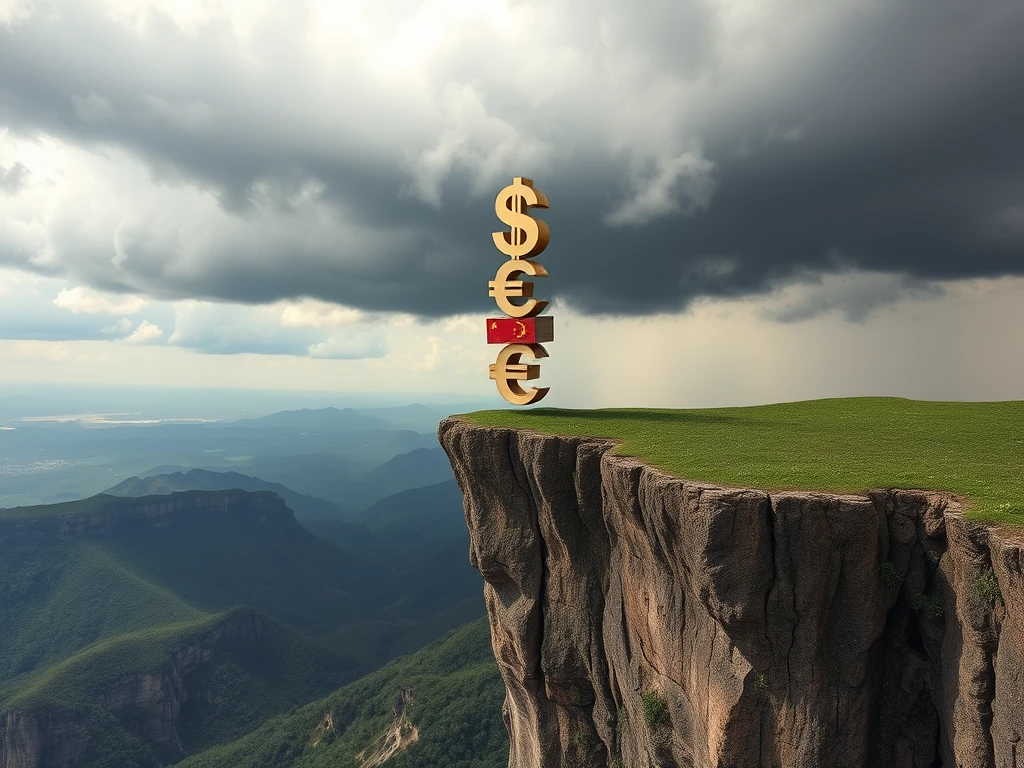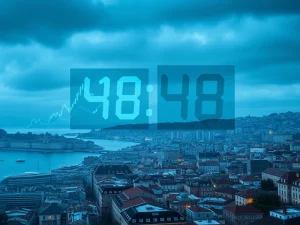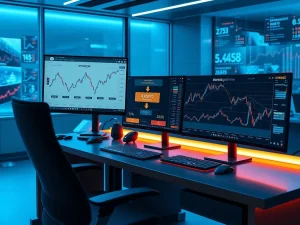Ray Dalio: Global Monetary Order Faces Imminent Collapse

Legendary investor Ray Dalio, founder of Bridgewater Associates, has issued a stark warning: the world’s financial system, the Global Monetary Order, is potentially facing a significant breakdown. This isn’t just market noise; it’s a call to attention for anyone holding assets, especially those watching the evolving role of digital currencies like Bitcoin.
What Did Ray Dalio Say About the Brink?
According to Dalio, the current Global Monetary Order is on the verge of collapse. He points to several factors accelerating this trend:
- Increased trade tensions and tariffs, particularly between the US and China.
- Fueling deglobalization efforts.
- Creating unsustainable trade imbalances between nations.
Dalio believes these issues are causing irreversible damage. Importers and exporters, especially those involved in US-China trade, are already reducing reliance and planning for a future with less interdependence.
Is the US Dollar‘s Dominance Sustainable?
A core part of Dalio’s argument challenges the long-term viability of the United States’ economic position. He highlights two critical points:
- The US is the world’s largest consumer of manufactured goods.
- The US is the world’s largest debt issuer.
Dalio suggests the idea that trade partners will continue selling goods to the US indefinitely and simply accept dollars in return is ‘naive thinking.’ This situation encourages countries to bypass the US US Dollar by forming new trade networks and exploring alternative currencies.
How Does the Trade War Fit In?
The Trade War, largely initiated through tariffs by the previous US administration, is seen by Dalio as a key accelerant to this breakdown. Tariffs disrupt established trade relationships and force countries to reconsider their economic partnerships.
Examples mentioned include significant duties on imports from China, as well as tariffs on goods from neighboring countries like Canada and Mexico. Even countries involved in Bitcoin mining manufacturing, such as Thailand, Indonesia, and Malaysia, have faced tariffs impacting machine imports into the US.
What Are the Alternatives Dalio Considers?
While Ray Dalio didn’t explicitly name a single successor currency, he has historically favored ‘hard money’ assets during times of economic uncertainty. Assets like Bitcoin and gold fit this description because they are not controlled by any single government or central bank and have finite supply characteristics (or perceived scarcity in the case of gold).
The increasing discussion around alternative trade networks and currencies naturally brings decentralized assets like Bitcoin into the conversation as potential stores of value or mediums of exchange outside the traditional US Dollar-centric system.
What Should Investors and Policymakers Do?
Ray Dalio advocates for a shift in focus. Instead of getting caught up in daily market fluctuations or minor policy announcements, he urges attention towards these fundamental changes in the world order. He calls for more coordinated action from the US to address trade imbalances and become more self-sufficient.
He believes dealing directly with the US government debt problem would yield better results than the current path, which he describes as marked by ‘disturbing fighting and volatility’ leading to ‘irreversible bad consequences.’
Summary: Navigating a Changing Financial Landscape
Ray Dalio’s warning about the Global Monetary Order being on the brink highlights significant pressures on the current financial system. Driven by factors like the Trade War, unsustainable US debt, and deglobalization, countries are actively seeking alternatives to the dominant US Dollar. While the path forward is uncertain, Dalio’s perspective underscores the importance of understanding these macro shifts. For those interested in assets outside the traditional system, like Bitcoin, these warnings reinforce the potential role of decentralized alternatives in a world seeking financial stability beyond conventional means.









